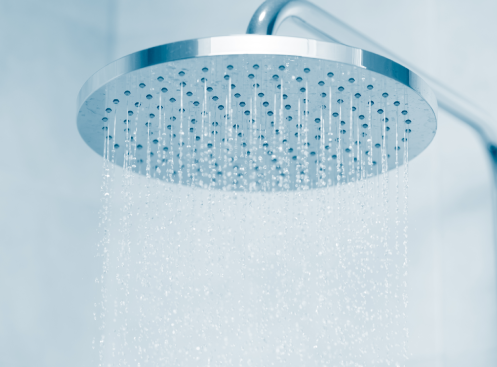10 Reasons for Low Water Pressure in Your Home
Plumbing problems are the most frustrating for homeowners in the Boston area. One problem that is less obvious is low water pressure. You may notice a gradual reduction in water pressure or turn on a faucet only to have a slim stream of water come out of the tap. Fortunately, you can do some troubleshooting on your own and perhaps even resolve the pressure issue without a professional technician.
Importance of Proper Water Pressure
Your plumbing system is designed to deliver water at a safe, efficient, and effective pressure that allows you to shower, wash your clothes and dishes, and water the lawn. When the pressure is too low, you’re more likely to run the fixtures longer, and this may result in greater water usage than what is necessary. Higher water pressure, though, has downsides, as well. The pipes in your plumbing are engineered to manage a certain level of pressure. When the water is delivered beyond the threshold, pipes break down faster, and the connections break, leading to broken and burst pipes. The ideal water pressure range for most Boston homes is 40 to 45 pounds per square inch. A technician from Blue Bear Plumbing, Heating & Air can check your water pressure to make sure that it’s within this range.
1. City Maintenance and Repairs
The simplest place to start when you notice low water pressure in your home is the city of Boston or your local municipality. Repairs and maintenance to the city-wide system can stop water flow in some areas and reduce pressure in other areas. The city can let you know if the work affects your address as well as the estimated time for the job. If the city is not performing any work on the main water system, you can start troubleshooting on your own.
2. Fixture Water Valves
Throughout your home, several water valves control the water pressure to individual faucets, toilets, fixtures, and appliances. In some cases, such as faucets and dishwashers, there will be a valve for the hot water and one for the cold water. If you have low water pressure at just one fixture, this is a good place to start. First, check to see if the water pressure is only low for the hot or cold water. Second, adjust the valve for that specific water source and fixture. You should not turn the valve all the way open, but just make small adjustments until the pressure feels adequate.
3. Main Exterior Water Valve
If you have low water pressure throughout your home, check the main water valve that is located outside on your property. This valve controls water flow from the main city system into your home. The valves are typically just below the surface of your lawn and covered, but these valves can be accidentally adjusted. If you aren’t sure where the valve is located, you can call the water company. Make small adjustments to the valve, and check the pressure inside your home with each adjustment.
4. Clogged Pipes
If the interior and exterior water valves are set properly, and you still have low water pressure, the next likely problem is a clogged pipe. In these cases, plungers and chemicals cannot help because the issue is with an intake pipe rather than a drain pipe. Call Blue Bear Plumbing, Heating & Air to schedule an appointment with one of our professional technicians to take a look at the problem.
5. Split Water Tubes
If you suspect low water pressure because your clothes and dishes do not come out clean, there is a possibility that one of the plastic water tubes is damaged. Pull the appliance out, and check for any signs of leaks. You should also check for any puddles around the appliances. The tubes are relatively easy to replace if you have some basic DIY experience, or you can contact Blue Bear Plumbing, Heating & Air to schedule an appointment with one of our technicians.
6. Broken and Burst Pipes
Broken and burst pipes can cause low water pressure in your Boston home, and you may not always realize that there is a problem. When pipes break inside your home, you can see visible puddles, but outside your home is another story. Broken outdoor pipes typically flood an area of your lawn, and the water is absorbed by the soil. You can look for areas where the ground is especially muddy or damp. This is a good sign that you have a broken underground pipe. Call us right away to have a technician come by and make the necessary repairs.
7. Pressure Regulator
Every residential plumbing system has a pressure regulator that manages the water pressure from the main city supply into your home. The purpose of the regulator is to ensure that the water is not delivered at a capacity that exceeds the maximum for your plumbing system. You can test the problem by using a water pressure meter. Test the pressure from the exterior spigot that is closest to the pressure regulator. The readings should be nearly identical. If you see an obvious difference, your pressure regulator is failing and needs to be replaced.
8. Corrosion
Rust and corrosion inside plumbing pipes allow water to seep through the walls of the pipes. This means that less water is reaching your fixtures, and the pressure feels low. Some plumbing materials, such as plastic and PVC, are not susceptible to corrosion, so we do not see this issue in newer Boston homes. However, older homes have plumbing with galvanized steel, cast iron, and other types of metal pipes. If your pipes are damaged by rust and corrosion, the experts at Blue Bear Plumbing, Heating & Air can help. We will recommend affordable updates to your pipes that will prevent the problem from happening in the future.
9. Calcium Buildup
Many types of plumbing materials are vulnerable to mineral buildup. Calcium buildup is the most common mineral that affects Boston’s plumbing systems, which causes a slow, gradual reduction in water pressure. The calcium sticks to the interior of the pipe, and, over time, more calcium adheres to the deposits to clog the pipe. In some cases, we can clear the clog, but it’s likely to occur again. We may recommend that you replace sections of your plumbing pipes where calcium deposits are more likely, such as bends and connections in the pipes.
10. Growing Family
Having a growing family is a good thing, but it also places more demand on your plumbing system. If you notice that the water pressure is lower when everyone is using the bathroom, washing dishes, or doing laundry, this is most likely the reason. Blue Bear Plumbing, Heating & Air can come by and evaluate your plumbing system to make recommendations for updates that can evenly distribute water during the most high-demand times.
Find the Experts for Low Water Pressure
Since 2017, Blue Bear Plumbing, Heating & Air has been serving homes and families in the Boston area with professional, expert plumbing, heating, and cooling services. Call us today to learn more about us.
Contact Us Today

Routine maintenance is vital for the longevity of your plumbing, heating, and air conditioning systems. Sign up for our Blue Care Maintenance Plan for annual service and exclusive membership benefits, including:
- Priority scheduling
- Waived service fee during normal business hours
- 10% discount on service calls
- 3% discount on new installations
- Two-year parts and labor warranty on new equipment







